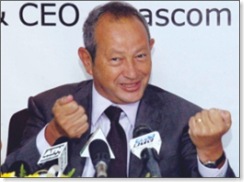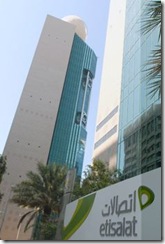Lebanon’s Ministry of Telecommunications has extended Zain’s management contract of mobile operator MTC Touch by another year, and awarded Egypt’s Orascom a similar contract to manage Alfa’s network.
 Orascom’s Naguib Sawiris believes the one-year management contract of Alfa paves the way for future opportunities and investment in Lebanon
Orascom’s Naguib Sawiris believes the one-year management contract of Alfa paves the way for future opportunities and investment in Lebanon
The new contracts are worth US$145 million, and will come into effect from February 1 for one year, according to local reports.
Orascom will take over administration of Alfa from the ministry, following the termination of the ministry’s previous contract with Fal Dete Telecommunication. Under the terms of the contract, Orascom is required to increase the number of its subscribers from 600,000 at the end of 2008 to one million by the end of this year.
“We believe that our entry to the Lebanese market through this management contract could pave the way for further investments in telecommunications by Orascom Telecom in Lebanon at a later stage,” said Naguib Sawiris, Orascom Telecom’s chairman and CEO.
Zain is also committed to increasing MTC Touch’s subscriber numbers by an additional 400,000 from a current base of 800,000.
In June 2004, Zain commenced a four-year agreement with the Lebanese government to manage the mobile network of Mobile Interim Company 2 (MIC2), which was later rebranded to MTC Touch in 2004.
“We look forward to the privatisation of the mobile sector and are hopeful that we can secure a long term licence to operate in this promising country,” commented Zain’s CEO Saad Al Barrak.
Lebanon has some of the highest mobile charges in the Middle East, with only 1.4 million of its four million inhabitants, or 35 per cent, connected to a mobile network.
The new contracts are a bridging measure until privatisation of the cellcos takes place, following repeated delays due to the global financial situation.


 Just five years ago, if a local wanted to make a phone call in Afghanistan, he either used one of the 30,000 Thuraya satellite phones that were available and which cost US$12 per minute to use, or he walked to a neighbouring country,” recalls Roshan’s CEO Karim Khoja.
Just five years ago, if a local wanted to make a phone call in Afghanistan, he either used one of the 30,000 Thuraya satellite phones that were available and which cost US$12 per minute to use, or he walked to a neighbouring country,” recalls Roshan’s CEO Karim Khoja.



